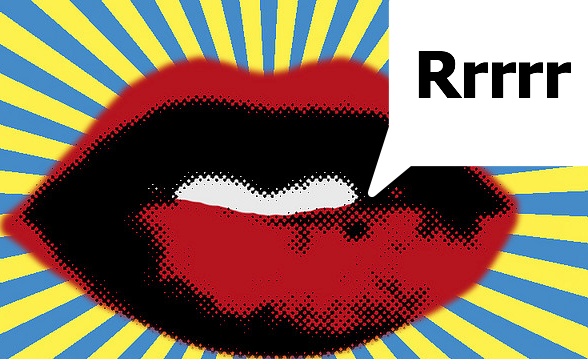I found this funny video via the Matador Network and it’s sooo true! If you don’t speak Spanish, basically it’s about how words can mean completely different things from one country to another.
Here’s part of the chorus and Matador’s translation:
Que difícil es hablar el español
Por que todo lo que dices tiene otra definición
Que dificil es entender el español
Si lo aprendes, no te muevas de regiónIt is so difficult to speak Spanish
Because everything you say means something else as well
It is so difficult to understand Spanish
If you ever learn it, stay where you are!”
Basically, words that are harmless in one country can be totally offensive in another, or the other way around. There’s a TON of variation in what words mean because each country has its own slang, and there seems to be more variation than in English.
For example, I came to Spain for the first time well-prepared with insults I learned in southern California…which, of course, were mostly Mexican insults and nobody in Spain understood.
I had another misunderstanding last week. Here’s what happened. I was hanging out with some people from South America who kept calling each other “marica”. I didn’t understand what it meant, so I asked if it had something to do with the offensive “maricón” (“queer” or “faggot” in English).
They said it was totally not related and meant something like “dude” or “mate”, which was confirmed by people from two different countries. So I proudly tried it out on a Spaniard, glad to have a new slang word.
Turns out marica is related to maricón in Spain, and is also pretty offensive. Thankfully, the Spaniard in question let me know before I kept using it! I thought maybe that was only a Spanish thing, so I rushed to Word Reference to read about marica.
Nope, it’s definitely offensive in pretty much every single Spanish-speaking country….except Colombia and Venezuela. And guess which two countries these South Americans were from? Yep, Colombia and Venezuela. Sigh.
Still, it’s better than the time my Argentine friend invented a word every time I asked “Como se dice ____?” It took me a ridiculously long time to realize he was making things up!
Or the time my other Argentine friends told my German friend consolador was the word for “corkscrew”. She asked an entire party full of people where her consolador was, which made everyone laugh and say they didn’t know.
Only after she’d asked everyone did they let her know it actually meant “vibrator”, not “corkscrew.”
All I have to say is….¡qué difícil es hablar el español!







haha i’m only comfortable with using joder in front of people.
one of the younger teachers at my school rides the train with me back to madrid on weds. and last night we had a convo about “ala!” “venga!” and another one i can’t remember now.
Yeah, they have some really weird phrases! Somebody was trying to explain ‘vaya tela’ to me the other day.
But ‘joder’ is pretty all-purpose, so you picked a good one!
Had to laugh at this – marica LOL!!!! You have been learning “jerga” and someone has been pulling your leg. However, it IS common for an offensive insult to be used as a term of endearment… ahem, I hope 🙂
Yep, learning jerga is always a fun game! Luckily, I’m so obviously not Spanish just based on my appearance that they give me a bit of leeway…well, as you put it, I hope so!
¡Qué divertido! 😉
Reblogged this on travels with toby and commented:
I found this post a while ago and was just thinking about it. Rather than just repost the very amusing video here, I thought I would just reblog the original post in its entirety. I hope you all enjoy! I sure did.
Thanks for the reblog! This video is so funny, it was nice to watch it again 🙂
They both are colombians, they are brothers From Bogotá the Capital. Non of them are venezuelan.
I didn’t say they were – I was talking about some of my friends from Venezuela. 🙂